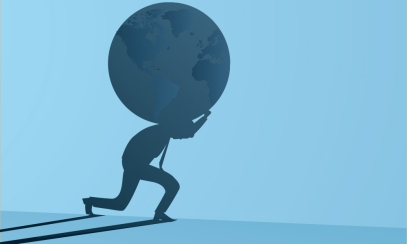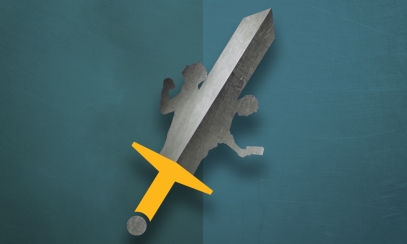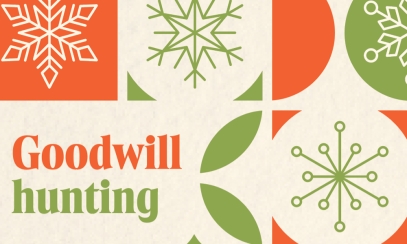
The cliffs of insanity!
My brush with death
My brush with death
A few decades ago (I’ll keep the exact year vague to hide my true age), my wife and I, along with a couple of friends, were hiking in the hills around Stratherrick near Loch Ness in the north of Scotland. We decided to climb Beinn Dubh-choire, a mountain whose Scots Gaelic name translates as “awfully large lump of black rock,” or something like that. We had gotten to the top and were standing chatting while on the edge of a 500-foot cliff, when suddenly my foot slipped, and I fell backward off the mountain. I remember thinking as I fell, “This is interesting. I’ve always wondered what it would be like to fall to my death from a cliff.”
A few decades ago (I’ll keep the exact year vague to hide my true age), my wife and I, along with a couple of friends, were hiking in the hills around Stratherrick near Loch Ness in the north of Scotland. We decided to climb Beinn Dubh-choire, a mountain whose Scots Gaelic name translates as “awfully large lump of black rock,” or something like that. We had gotten to the top and were standing chatting while on the edge of a 500-foot cliff, when suddenly my foot slipped, and I fell backward off the mountain. I remember thinking as I fell, “This is interesting. I’ve always wondered what it would be like to fall to my death from a cliff.”
Somehow, however, I managed to twist my body round in midair, so that I was facing the mountain, and landed on my feet on an unseen ledge about 10 feet below the summit. It was a miracle. Slightly stunned, I looked up at the three hysterical faces above me and muttered, “Well, that was fun…,” with a nonchalance that only the terror of death can give you.
Events like these bring the sobering thought to mind that none of us really knows how long we have left in this world. That, in turn, could lead us inexorably down a dark path to despair, if it wasn’t for the hope that we have of a life beyond this mortal coil. Yes, we have hope that when we die, we will end up in heaven, but does our conduct here below justify that lofty aspiration?
Few like to think of death being just around the corner, especially if they don’t have confidence that they will be led into that heavenly realm by a smiling, welcoming committee of saints and angels. But sometimes, we have to go there. Sometimes, we need to come to terms with the fact that, late or soon, we will all have to pass through the portal of death. Does this fill us with dread? Are we terrified that we somehow won’t make the cut? After all, it is possible to go to hell. So where do we find hope? Let’s open our Bible.
What we know about God’s attitude to us can be found in the Gospels. The parable of the prodigal son reveals the Lord’s compassion for us when we sin. Jesus defends the woman caught in adultery. He does not condemn her himself but, instead, urges her to amend her life. The parable of the Pharisee and the tax collector demonstrate that God is drawn to humility, weakness, and need. All of Jesus’ healings were encounters with individuals. This fact alone tells us that God loves us, not just as an anonymous member of a crowd but individually. And last, and most astonishing of all, Jesus loves us so much that, to prove the point, he not only died for us on a cross but even forgave his murderers.
In the Gospel of John, we read, “For God did not send his Son into the world to condemn the world, but to save the world through him.” (Jn 3:17) God has no interest in our destruction but longs instead to have us approach him, in order to receive what? Love. It’s all about love.
This month, when we remember those holy souls who have gone before us in death, is the ideal opportunity for us to examine our conscience and ask the question, “Am I living the sort of life that will guarantee safe passage to the shores of paradise? Do I love God enough, or am I subtly worshiping other idols? Am I ready to meet my maker?” If not, let’s make haste to the confessional without delay.
Let’s also make the best of the time we have left and, most of all, let’s open ourselves to God’s never-ending love. We don’t know when we will “pop our clogs,” as they say, so let’s stand ready and alert. And in the meantime — I speak from experience — stay away from awfully large lumps of black rock.



